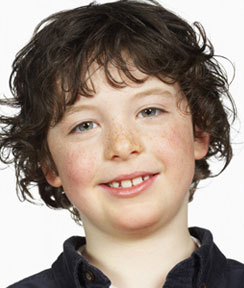Getting kids to brush their teeth can seem like a feat worse than climbing Mt. Everest. Even if you can get them to brush – are they brushing for at least 2 minutes? While these tasks might seem impossible to achieve, there are simple ways to make brushing not only fun, but effective for kids.
7 Tips For Getting Your Children To Brush Their Teeth
1. Routines Are Your Friends
Kids teeth should be cleaned every morning and every night with an age appropriate amount of fluoride toothpaste. Once you set the routine and your kids understand this routine, then making it happen each day becomes easier. This is a routine that will continue to pay off for their whole lives.
2. Model The Behavior You Want
Children learn by watching their parents. In fact, they’re hard wired to copy their parents. Let your kids watch you brush your teeth and talk about how much you like your teeth clean. Soon they’ll want to be just like you.
3. Specific Praise
When your kids are helpful or cooperative with cleaning teeth, let them know exactly what they’ve done right. You might say “you did such a great job of opening wide and staying still while I cleaned your back teeth.”
4. Discover Xylitol Gels and Kid Flavored Toothpaste
Young kids can be very sensitive to flavors. Xylitol is a sweetener that has a mild sweet taste and prevents cavities. Many kids love the taste. Put some xylitol gel on a toothbrush along with some kid flavored fluoride toothpaste and see how they respond. Experiment with some different flavors until you find something they like.
5. Sing a Song
What kids don’t love to sing? Whether you sing to them or everyone sings along together, singing can make the time go faster. You can sing the traditional ABC song a couple of times to hit the two minute mark or make up your own words to the same tune. You know your kids and what will get them excited about brushing, so use the song that will work and get them brushing!
6. Set a Timer
Some kids love watching timers – especially those competitive kids that want to do their best. Make it a game and let the kids “beat” the timer. If you don’t have a stopwatch handy, be creative and use an egg timer or even your Smartphone to get the job done.
7. Play a Video or App
There are numerous tooth brushing apps that get kids excited about brushing as well as help them forget about the amount of time they are spending doing it. If you have young toddlers, there are many cartoon characters that are ready to get them brushing their teeth the right way. The added bonus is your kids will learn about oral health while listening to the characters; it’s a win-win situation.
Of course, good brushing habits are reinforced by regular visits to the dentist. We’d love to meet you! Call us at 503-297-1711 or request your appointment online.



